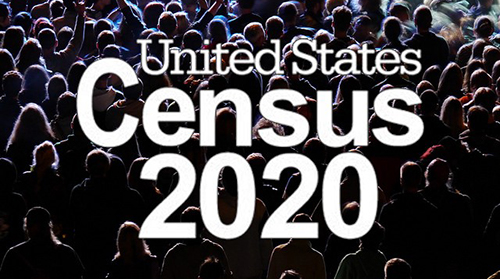
By Alejandra Alberto
If the Trump Administration gets its way and includes a question regarding U.S. citizenship status on the 2020 Census, it could lead to undercounts of the population in California, triggering less federal funding for a menagerie of services, U.S. Census Bureau officials said during a meeting in Bakersfield this month.
U.S. Census Bureau officials said this month that it remains unclear whether a question would be added to the census asking about citizenship status, but that such an effort could severely damage the integrity of the once-a-decade population count.
“I feel that it will create an undercount because people are afraid to answer the question, so we don’t know at this point,” Alana Golden the U.S. Census Bureau’s assistant director of marketing, and communications said during a meeting this month at Beale Memorial Library in Bakersfield kicking off census outreach efforts. “We’ll wait and see, but either way, we need to help inform and educate people to understand that it’s important that they complete the census.”
California Attorney General Xavier Becerra led efforts to file a lawsuit against the federal government in response to the question being placed on the census.
“What the Trump Administration is requesting is not just alarming, it is illegal; adding a citizenship question would fatally undermine the accuracy of the 2020 Census and reduce response rates, especially among immigrant and noncitizen communities,” Becerra stated in a news release announcing the lawsuit.
Census day is April 1, 2020, and U.S. Census Bureau representatives want to ensure the public is educated and informed on how critical it is to participate in the census.
“The census count is important because it means two things: federal funding to our state, and our communities. That’s for things like food programs, health programs, new roads, infrastructure, services for veterans and services for seniors,” Golden said. Specifically, the census helps guide how roughly $675 billion in federal funding will be spent to help create jobs, provide housing, prepare for emergencies, and build schools, roads and hospitals.
Census representatives told the attendees at Beale Memorial Library that a complete count helps decision makers plan for the future of communities, and determines how much money communities will get — but an accurate count can only happen with the help of trusted community leaders.
The convening included topics such as the operational timeline of the 2020 Census to the challenges and opportunities, hard to count populations, overcoming barriers, a panel discussion, and group discussions.
Jillian Mercer of the California Veterans Assistance Foundation mentioned that one of the difficulties is tracking homeless.
“I find it hard to count the homeless because they are always moving. I feel like there is more homeless than what we counted,” said Mercer.
During the meeting it was discussed that different types of groups can be difficult to count, or some people simply do not want to be counted, which can be one of the barriers. Some of the solutions that were offered were having good messengers to educate the public about the census and its importance, as well as having respect for one’s culture when trying to reach out to different groups.
The California Census 2020 – Regional Readiness Assessment Convenings have meeting dates set throughout the year across California. The dates can be found on their website. For more information regarding the census, contact info@census.ca.gov.